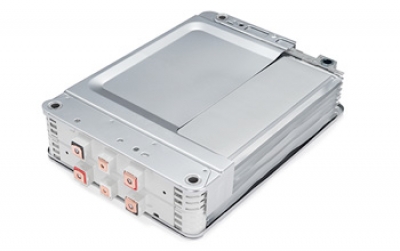IESA hails GST reforms on batteries, seeks relief on EV parts, charging services
By IANS | Updated: September 8, 2025 17:15 IST2025-09-08T17:14:07+5:302025-09-08T17:15:10+5:30
New Delhi, Sep 8 Industry body India Energy Storage Alliance (IESA) on Saturday welcomed the new GST 2.0 ...

IESA hails GST reforms on batteries, seeks relief on EV parts, charging services
New Delhi, Sep 8 Industry body India Energy Storage Alliance (IESA) on Saturday welcomed the new GST 2.0 regime that rationalised tax rates on advanced batteries but requested the government to consider lowering tax on EV parts from 18–28 per cent slabs to a 5 per cent slab.
Under the revised GST structure, all batteries, including lithium-ion, sodium-ion, flow, and metal-air chemistries, will now be taxed at a uniform 18 per cent. This replaces the earlier regime where lithium-ion batteries attracted 18 per cent GST, while other chemistries were levied 28 per cent.
The IESA welcomed this move as a "landmark step" that provides a level playing field for non-lithium technologies and encourages innovation in long-duration energy storage.
"However, a few major recommendations remain pending and are under active consideration. The request to reduce GST on parts used in the manufacture of electric vehicles from 18 per cent or 28 per cent to 5 per cent remains under review, as the Fitment Committee cited concerns regarding an inverted duty structure," the industry body said in a release.
IESA President Debmalya Sen said: "For the Clean Hydrogen ecosystem, Ammonia GST has been reduced from 18 per cent to 5 per cent, and hydrogen fuel cell vehicles, not longer than 4m, GST from 12 per cent to 5 per cent. While the IESA had passed on other recommendations too, we are delighted that some of our recommendations were considered.”
Regarding the remaining pending proposals, the IESA urged ongoing engagement to address duty inversion and further support domestic manufacturing.
Similarly, proposals to cut GST on EV charging and battery swapping services from 18 per cent to 5 per cent, or to treat them as a supply of electricity, have not been approved, the IESA noted.
The Council, following Fitment Committee recommendations, has agreed to clarify the nature of the service but will maintain current GST rates for now, the release said.
Disclaimer: This post has been auto-published from an agency feed without any modifications to the text and has not been reviewed by an editor
Open in app